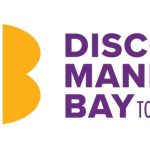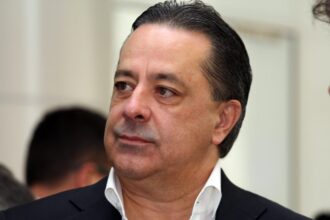A forensic investigation by PricewaterhouseCoopers (PwC) has uncovered how Steinhoff, once one of South Africa’s largest retail companies, used fake transactions to artificially inflate its profits by 200 million USD (R3.7 billion). The fraudulent activities, orchestrated under the leadership of the now-deceased CEO Markus Jooste, involved intricate inter-company dealings, questionable accounting practices, and non-existent income recorded in financial statements.
How the Fraud Was Orchestrated
The 7,000-page PwC report, obtained through a Promotion of Access to Information Act (PAIA) application by Business Report, provides an in-depth analysis of the accounting manipulations that led to the scandal. A key revelation in the report details how a fabricated transaction resulted in $200
R3,722.73 million being recorded under “other income,” despite no actual revenue being generated.
PwC highlighted that a major fraudulent transaction involved a contribution of 162 million USD from Steinhoff’s Austrian subsidiary, SEAG Austria, to Mattress Firm (MFRM), a Steinhoff-owned U.S. mattress retailer. This money was supposedly allocated for MFRM’s rebranding costs as it transitioned from Tempur Sealy to Serta Simmons.
Adding to the deception, another 200 million USD was allegedly contributed to SEAG Austria by a company called Tulett, purportedly acting on behalf of the private equity firm Advent. However, PwC’s investigation found that neither Advent nor Serta Simmons had any knowledge of Tulett or the agreement. Furthermore, Serta Simmons never agreed to reimburse Steinhoff for the funds, contrary to what Jooste had claimed.
Deloitte’s Scrutiny and Jooste’s Responses
Deloitte, Steinhoff’s external auditor, raised concerns about the validity of these transactions in 2017. Jooste, in response, assured auditors that he would provide proof of a signed agreement validating the transactions. However, no such documentation ever materialized.
PwC quoted Jooste as stating in November 2017: “I then have my joint venture with Serta Simmons, Serta Simmons will pay the $200
R3,722.73m back for the cost reimbursement and it will pay the $600
R11,168.20m for the brands of GT which Serta Simmons in future wants to use for America.”
The $600
R11,168.20 million (R11.6 billion) reference pertained to the sale of rights to use Steinhoff’s GT Branding Holding brands in the U.S., Canada, Mexico, and China. However, this supposed reimbursement never occurred.
Manipulative Accounting Practices
The fraudulent transactions were initially recorded but later reversed when their illegitimacy was exposed. However, instead of processing a legitimate reversal entry, Steinhoff simply deleted the original journal entry, a move PwC flagged as highly irregular and indicative of a deliberate cover-up.
The investigation also pointed out severe deficiencies in Steinhoff’s European financial consolidation processes, where journal entries could be altered or deleted after being posted. PwC concluded that these loopholes created opportunities for manipulation and significantly increased the risk of accounting fraud.
The Collapse of Steinhoff
Steinhoff’s fraudulent accounting practices first came to light in 2017 when Deloitte identified “accounting irregularities.” This revelation led to a catastrophic decline in Steinhoff’s share price, wiping out billions in investor value and prompting legal action against several executives.
Following years of investigations and legal proceedings, Steinhoff was officially liquidated on October 13, 2023. Some of its former holdings, including Pepkor, have since been taken over by Ibex Holdings.
Lessons from South Africa’s Largest Corporate Scandal
The Steinhoff saga serves as a cautionary tale on the dangers of unchecked corporate governance failures and financial mismanagement. It underscores the importance of rigorous auditing, transparency, and accountability in large corporations to prevent fraudulent activities that can devastate economies and investors alike.










